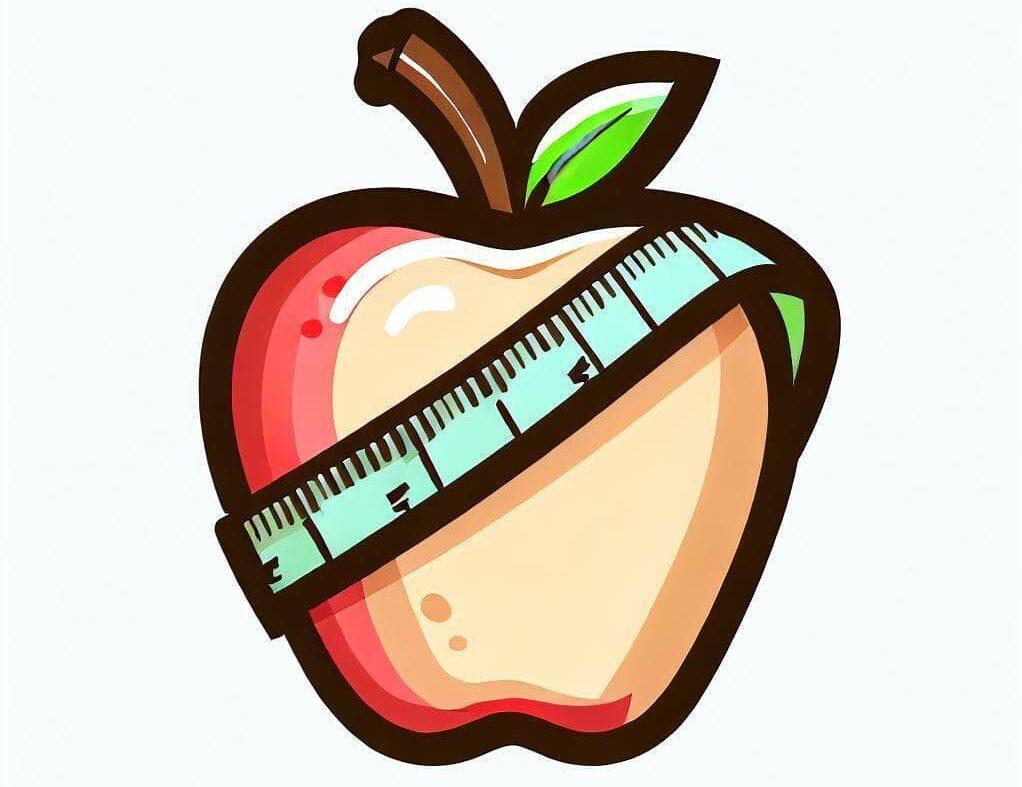Is Cornbread Good for Weight Loss?
This post may contain affiliate links which means I may receive a commission for purchases made through links at no extra cost to you. See my disclosure policy for more information.
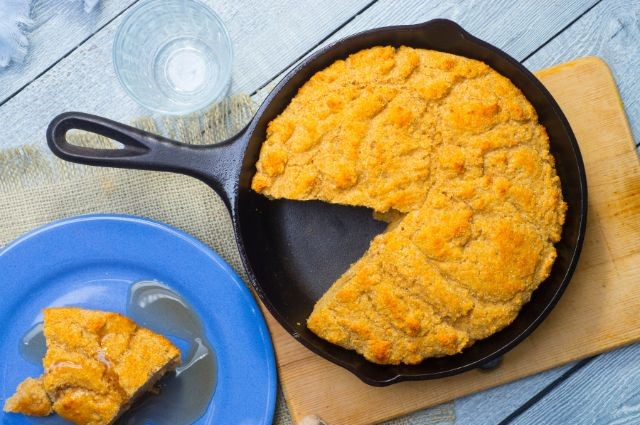
Is cornbread good for weight loss? The short answer is no because the traditional cornbread is calorie-dense due to its content of refined flour and added sugars, however, there are plenty of ways to make this southern classic healthier and more weight-loss-friendly.
In this article, we’ll explore whether eating cornbread can align with a healthy diet and contribute to weight loss.
Nutritional Value of Cornbread
Most cornbread recipes use baking powder, which can add a light, fluffy texture but doesn’t significantly impact the nutritional value.
As per USDA, 1 cup of Cornbread contains the following nutrients.
Serving size: 1 cup (89 g)
Calories: 198
Protein: 4 g
Fat: 6 g
Carbs: 33 g
Sugar: 3 g
Fiber: 1.5 g
The Potential Benefits of Cornbread for Weight Loss
Ready to dive deeper into how cornbread can potentially work as part of your weight loss strategy?
Let’s break it down, ingredient by ingredient, to understand the science behind the benefits.
Fiber Fullness
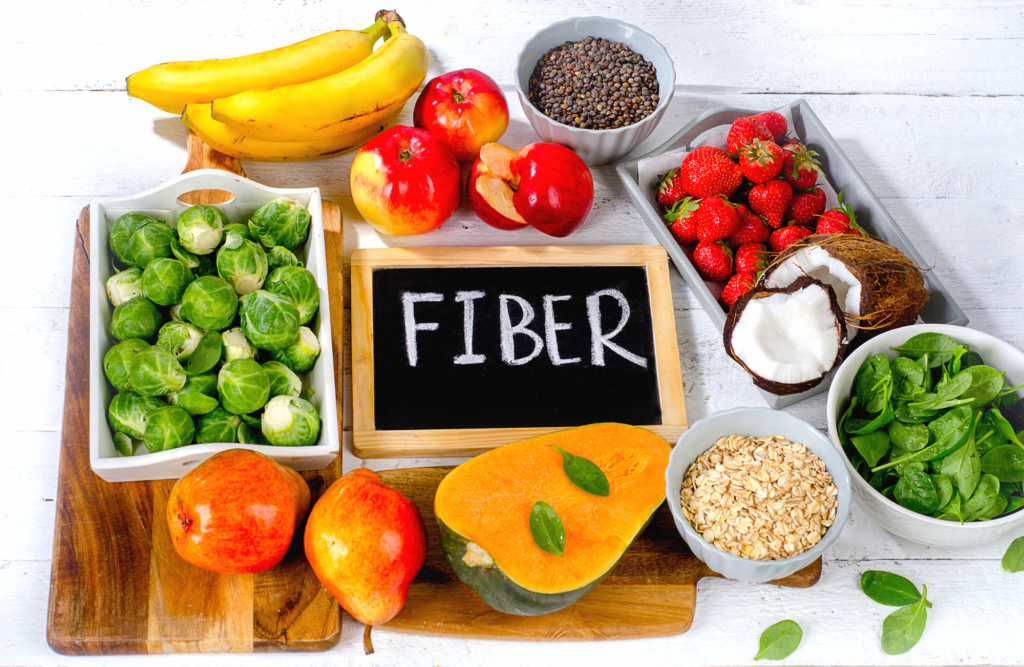
A healthy cornbread recipe, using ingredients such as whole grain flour and vegetable oil, can provide necessary dietary fiber and healthier fats.
Now, why is this important?
Think of fiber as a friendly tour guide for your digestive system. It passes through your stomach and intestines slowly, which gives you a feeling of fullness and satisfaction.
This sensation of being full can help control overeating and unnecessary snacking—crucial steps in managing your calorie intake for weight loss.
Whole Grains and Blood Sugar

When you hear about blood sugar, you might immediately think of diabetes.
But blood sugar levels affect everyone, not just those with diabetes, and can play a pivotal role in weight management.
Foods made with refined flour often cause a rapid spike and then a crash in blood sugar levels, leading to a cycle of hunger and overeating.
Whole grain foods, however, including our friend cornbread (when made with whole wheat flour and yellow cornmeal), have a lower glycemic index.
This means they help regulate blood sugar levels, releasing energy slowly and keeping you satisfied for longer.
The result? You’re less likely to reach for that unplanned midday snack.
The Power of Protein

Did you know cornbread could be a source of protein? Yep, it’s true!
Whole wheat flour and cornmeal both contain essential amino acids—the building blocks of proteins. Now, proteins have this nifty role in the body.
They help in the growth, repair, and maintenance of muscles. Muscles are like your body’s calorie-burning factories—the more you have, the more calories you burn, even when you’re resting.
So, eating protein-rich foods like cornbread might help you to maintain or even increase your muscle mass, supporting your weight loss efforts.
Nutrient Density
When we talk about weight loss, it’s not just about cutting back on calories; it’s also about making the calories you eat really count.
Cornbread can be a good source of vitamins and minerals, including B vitamins, iron, and magnesium.
These nutrients are vital for various bodily functions, including energy production and maintaining a healthy metabolism.
A healthy metabolism is key for effective weight loss, as it determines how quickly you burn calories.
Also read: Best Time to Drink Hibiscus Tea for Weight Loss
Downsides of Cornbread for Weight Loss
While we’ve discussed some of the potential benefits of cornbread in a weight loss diet, it’s equally important to address the other side of the coin.
Yes, there can be certain pitfalls when it comes to incorporating cornbread into your weight loss journey. Let’s look at these potential downsides in a little more detail.
The Calorie Conundrum
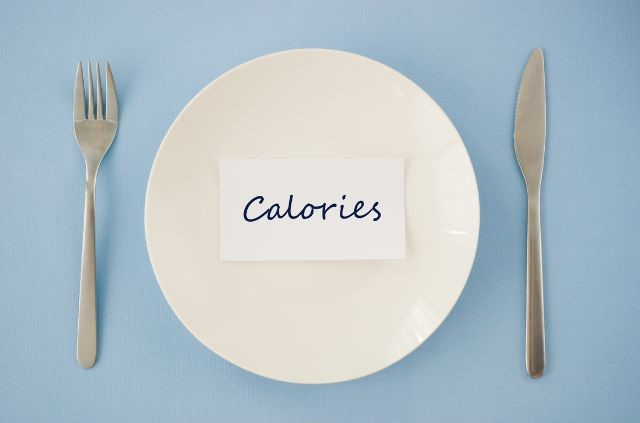
As delicious as it is, cornbread can be quite a calorie-dense food. This means that a seemingly small piece might pack more calories than you’d expect.
When you’re trying to lose weight, it’s essential to create a calorie deficit, which means you burn more calories than you consume.
So, a hefty slice of cornbread might make it harder to achieve this balance.
But why are calories important? Well, think of calories as the body’s fuel.
Consuming more fuel than your body can burn could lead to the excess being stored as fat, making weight loss more challenging.
Therefore, if you’re planning to incorporate cornbread into your diet, paying attention to portion sizes is crucial.
Sneaky Sugars and Fats
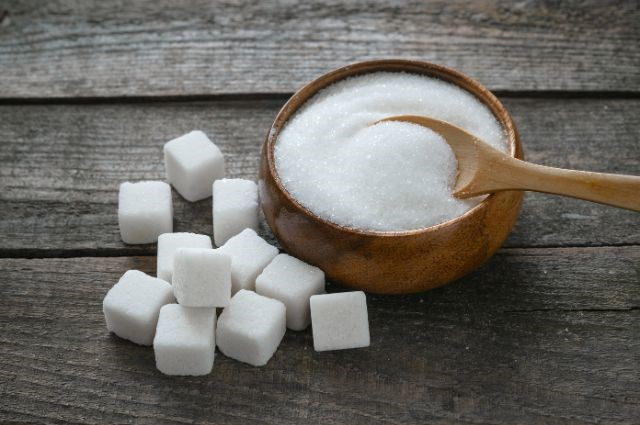
Traditional cornbread recipes can often call for quite a bit of sugar and fat. The sugars not only add extra calories but can also lead to fluctuations in blood sugar levels.
When blood sugar levels crash after a spike, it can trigger hunger and cravings, making it more likely for you to reach for an extra snack.
On the other hand, fats, particularly saturated fats from ingredients like whole milk and butter, can add a hefty amount of calories.
Plus, consuming too much saturated fat is linked with an increased risk of heart disease.
This doesn’t mean you need to cut out all fats—fats are crucial for absorbing vitamins and keeping you satisfied.
The key is to focus on healthy fats like those from olive oil or avocados and to moderate the intake of less healthy fats.
Refined vs. Whole Grains
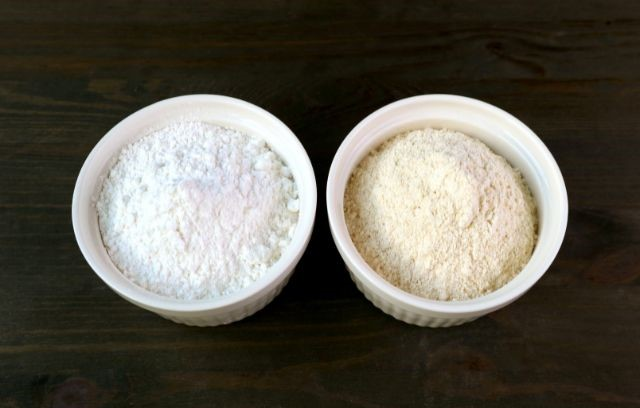
While cornbread can be made using whole grains, many recipes and store-bought versions use refined flour.
Refined grains undergo a process that removes the bran and germ, which are the most nutrient-rich parts.
This results in a final product that is lower in fiber and other essential nutrients, which we’ve already discussed can be helpful for weight loss.
Plus, as we mentioned earlier, refined grains can lead to spikes and crashes in blood sugar levels, potentially increasing hunger and cravings.
Sodium Savvy
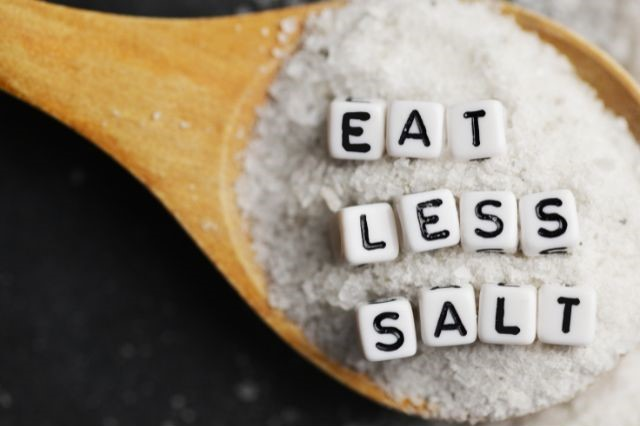
Let’s not forget about sodium. Traditional cornbread recipes often contain quite a bit of salt, and while this can make the bread taste great, it can have downsides when it comes to weight management.
High sodium diets can lead to water retention, which can show up on the scale as weight gain. Plus, over time, high sodium intake can lead to high blood pressure.
Also Read: Are Rice Noodles Good for Weight Loss?
How to Incorporate Cornbread into a Balanced and Healthy Weight Loss Diet
We’ve traveled the journey of cornbread, exploring its potential benefits and pitfalls when it comes to weight loss. Now, the big question remains—how can we smartly incorporate cornbread into a balanced and healthy weight-loss diet? Let’s break it down.
Mindful Portions
We’ve established that cornbread can be quite calorie-dense. So, the first rule of thumb for including it in your weight loss diet is to be mindful of your portion sizes.
Enjoy a small piece of cornbread as a side with your meal rather than making it the main event.
Think of it as a satisfying accompaniment to your veggies and lean proteins, rather than the star of the plate.
Modify Your Recipe
One of the best things about homemade cornbread is that you can tweak the recipe to make it healthier.
Try using whole wheat flour or another whole grain flour instead of refined flour. You could even mix flours for a unique flavor and nutritional profile.
Swap out brown or white sugar for alternatives like applesauce, mashed bananas, or even a touch of maple syrup. This can help lower the overall sugar content.
And what about fat? Well, instead of butter, consider using vegetable oils like olive oil or avocado oil.
These are higher in monounsaturated fats, which are heart-healthier than the saturated fats found in butter.
Fiber it Up
Adding extra fiber to your cornbread can help you feel full longer, potentially reducing the risk of overeating.
This could be as simple as adding some grated vegetables to your cornbread mix or even some seeds (like chia or flaxseed) for a fiber boost.
Balanced Plate Philosophy
Remember, weight loss isn’t just about one food—it’s about your overall dietary pattern.
So, when you’re having your piece of cornbread, make sure the rest of your plate is balanced, too.
Fill half your plate with colorful vegetables, a quarter with lean proteins (like chicken, fish, tofu), and the remaining quarter with whole grain (like cornbread or other options).
Timing Matters
While the whole “don’t eat carbs after 6 PM” idea has been debunked, there’s something to be said for eating heavier meals earlier in the day when your body is more active and thus likely to burn off the energy.
So, how does this apply to cornbread? Well, since it’s a bit calorie-dense, you might consider having it for breakfast or lunch, rather than dinner.
For example, a slice of homemade cornbread could make a great addition to a well-rounded breakfast, giving you energy for the day ahead.
Alternatively, it could be a satisfying side for your lunchtime salad or soup.
Eating your cornbread earlier in the day could help you feel fuller throughout the day and keep you from overeating later on.
This strategy, combined with the mindful modifications and balanced plate philosophy we discussed earlier, can make the cornbread a welcome part of your weight loss journey.
Also read: Are English Muffins Good for Weight Loss?
Alternatives to Cornbread for Weight Loss: Exploring the Bountiful Bread Basket
If cornbread has you concerned about your weight loss goals, worry not. There are plenty of other bread-like side options that can not only please your palate but also align better with your health objectives.
Whole Wheat Bread: An Oldie but a Goodie
Whole wheat bread has been a diet staple for many health-conscious people—and for good reason.
This trusty old companion is made from flour that incorporates the entire grain. This includes the bran and germ, parts of the grain that are bursting with nutrients.
What sets whole wheat bread apart is its high dietary fiber content. Fiber, as we’ve explored earlier, can be your best friend on a weight loss journey, helping you feel full and satisfied for longer periods.
This can be instrumental in managing your calorie intake and keeping those untimely cravings at bay.
Moreover, whole wheat bread brings a variety of essential nutrients to your plate, such as B vitamins, iron, magnesium, and selenium.
These nutrients play vital roles in maintaining your body’s well-being and energy levels, which can be particularly important when you’re working towards weight loss goals.
Sprouted Grain Bread: The Rising Star
Have you ever come across sprouted grain bread in your local bakery or grocery store? If not, it’s high time you did.
This type of bread, made from whole grains that have sprouted before being ground into flour, is gaining popularity for its health benefits.
What’s unique about sprouted grain bread is that the sprouting process can increase the bioavailability of nutrients, meaning your body can absorb them more efficiently.
Furthermore, sprouted grain bread has a higher protein and fiber content compared to regular bread, both of which are instrumental in supporting weight loss.
The glycemic index (GI) of sprouted grain bread is also lower than many other types of bread, meaning it releases energy slowly into your bloodstream, helping to keep blood sugar levels steady.
This can be beneficial in preventing sudden hunger pangs and cravings, giving you better control over your food intake.
Rye Bread: The Unsung Hero
Rye bread may not always take center stage, but it holds its own in terms of potential weight loss benefits.
Like other whole-grain breads, rye bread is high in dietary fiber, which aids in promoting feelings of fullness.
However, where rye bread really shines is in its satiety power. Research suggests that rye bread could be more satiating than wheat bread, meaning it could keep you feeling full and satisfied for longer.
This could make it a powerful ally in managing your calorie intake and maintaining control over your diet.
Sourdough Bread: The Flavorful Friend
Sourdough bread, with its distinctive tangy flavor, is a beloved classic. But did you know it also carries potential benefits for weight loss?
Sourdough bread undergoes a fermentation process in which natural bacteria and yeast interact with the flour.
This process helps break down some of the starch in the flour, making it easier for your body to digest.
This fermentation process also has another beneficial side effect—it lowers the bread’s glycemic index.
So, similar to sprouted grain bread, sourdough can provide a slower release of energy, helping to maintain steady blood sugar levels and ward off unwelcome hunger pangs and cravings.
Oat Bread: The Nutrient-Packed Powerhouse
Last on our list, but by no means least, is oat bread.
This delectable bread can be made from either whole oats or oat flour, both of which are packed with beneficial nutrients.
Oat bread is particularly rich in a type of fiber known as beta-glucan, which is known for its powerful health benefits.
Beta-glucans have been studied for their ability to promote feelings of fullness, which can help manage calorie intake and support weight loss.
In addition to helping with weight loss, the beta-glucans in oat bread are also linked with other health benefits, such as improving heart health and regulating blood sugar levels.
Thus, oat bread can be a wholesome addition to a weight loss diet, providing benefits beyond just calorie control.
Also read: Best Time to Eat Pasta for Weight Loss
Conclusion
Cornbread isn’t inherently fattening or slimming. Its impact on weight largely depends on its ingredients, portion sizes, and its role in your overall diet.
A piece of cornbread now and then, especially if it’s a healthier version, can fit into a balanced, weight-conscious diet.
Like with any food, enjoy cornbread in moderation, and remember, the secret to weight loss isn’t eliminating foods you love but finding a healthy and sustainable way to enjoy them.
FAQ
Can you eat cornbread on a diet?
Yes, you can include cornbread in your diet, even if you’re aiming for weight loss.
However, it’s crucial to consider portion sizes and to choose healthier versions of cornbread when possible, such as those made with whole grains and less added sugar or saturated fat.
Is cornbread a good source of carbs?
Yes, cornbread is a good source of carbohydrates. As a grain-based food, it provides complex carbohydrates, which are essential for energy.
However, the type of carbs (and their quality) can vary based on the ingredients used.
For instance, cornbread made with whole grains will have more beneficial complex carbs and fiber compared to cornbread made with refined flour.
Does cornbread have fewer carbs?
This question seems a bit incomplete as it doesn’t specify what cornbread is being compared to.
However, if we compare it to other bread types, the carb content can vary widely.
For example, cornbread typically has a similar carbohydrate content to wheat bread, but the exact amounts can depend on the specific recipes or brands.
It’s always a good idea to check the nutritional information if you’re keeping an eye on your carb intake.
Is cornbread better for you than wheat bread?
Whether cornbread is “better” for you than wheat bread can depend on various factors, including the specific ingredients used and your personal dietary needs.
In general, both can be part of a balanced diet.
Whole wheat bread and whole grain cornbread both provide dietary fiber, essential vitamins, and minerals.
If made with refined flours, both can lack these beneficial nutrients.
If you have specific dietary concerns or preferences (like a gluten-free diet), one may be a better choice for you.
It’s also important to consider factors like added sugars and fats in different bread varieties.
is cornbread healthy?
Yes, cornbread can be healthy if it’s made with wholesome ingredients and consumed in moderation.
However, its nutritional value can vary based on the recipe, and store-bought versions often have added sugars and fats.
As part of a balanced diet, it can offer some valuable nutrients.
This post may contain affiliate links which means I may receive a commission for purchases made through links at no extra cost to you. See my disclosure policy for more information.
Rahul is a professional nutritionist certified by the International Sports Sciences Association (ISSA) and a personal trainer certified through the American Council of Exercise (ACE). He has a special interest in the science of nutrition and how it can impact the body.
